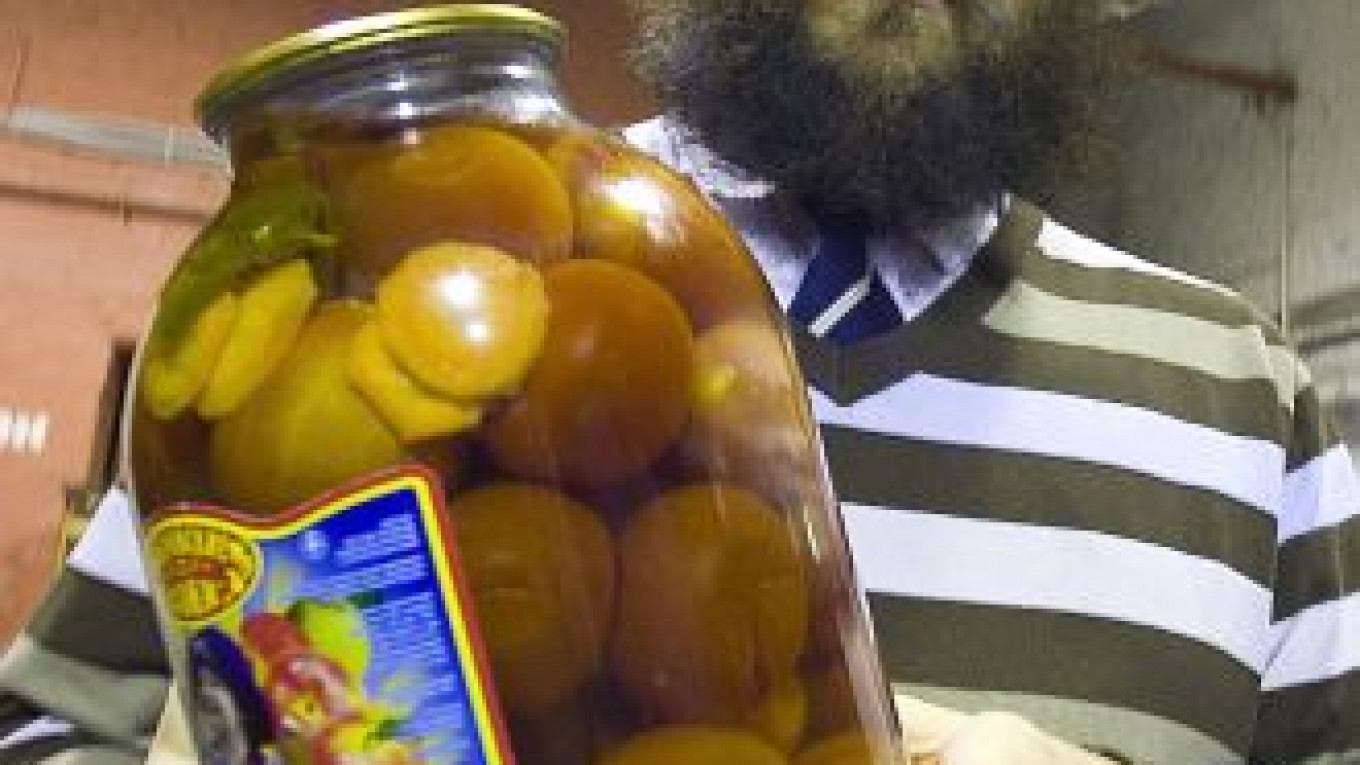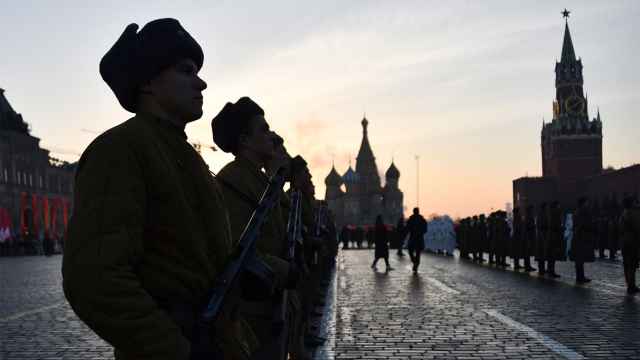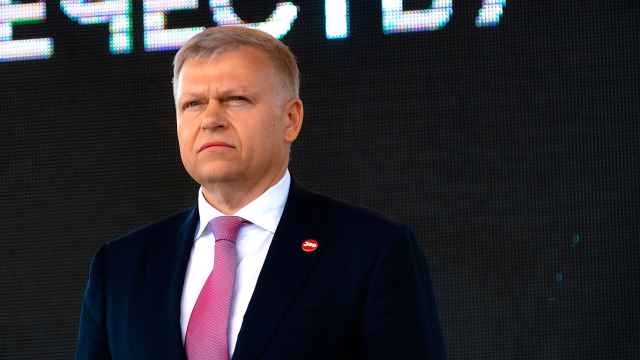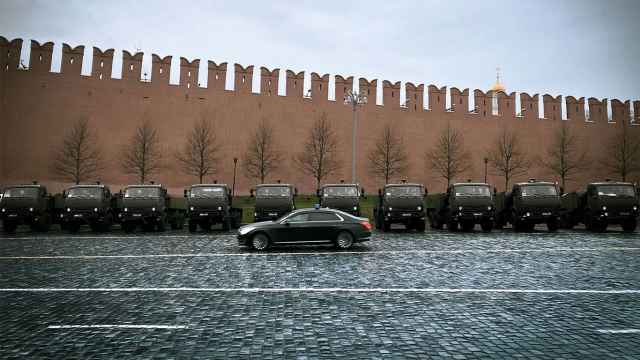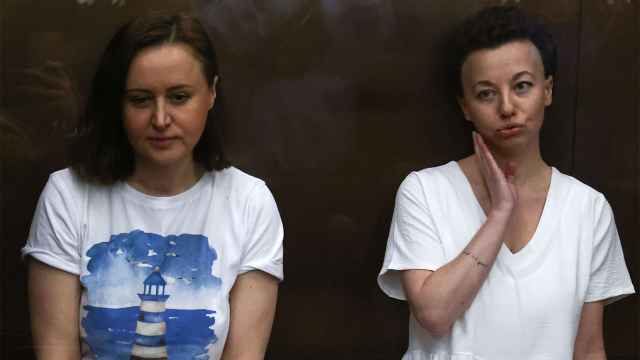The return of the artichoke to Russia was a personal triumph for Boris Akimov, a former journalist who serendipitously turned his passion for eating well into a miniature food revolution and a business.
Akimov, 35, first began to approach farmers in Russia in 2009 to find good geese to cook for himself and his friends. After establishing a channel, more people asked to tag on to his order. Akimov started searching for other farm produce and eventually his hobby grew into an online store called LavkaLavka, which to date has served about 10,000 customers, 2,000 of which are regulars.
As he developed his business model, he found he had to address some major sociological issues.
Boris Akimov
Education
2000 — Russian State University for the Humanities, undergraduate degree in political science2003 — Financial University of the Government of the Russian Federation, graduate degree
2004 — Financial University of the Government of the Russian Federation, Ph.D in philosophy
Work experience
2010-present — Co-owner and director of the LavkaLavka farmers cooperative2008-2010 — Creative director at Snob magazine during its launch phase
2002-2008 — Editor at FHM, Rolling Stone, Afisha
2000-2002 — Editor at Kommersant
Favorite book: Chevengur, by Andrei Platonov (written in the 1920s, published post-mortem in France and Italy in 1972, published in Russia in 1988)
Reading now: Locally Grown: Portraits of Artisanal Farms from America’s Heartland, by Anna H. Blessing (2012)
Favorite movie: Beg (1970), based on works by Mikhail Bulgakov, directed by Alexander Alov and Vladimir Naumov
Favorite restaurant: LavkaLavka Cafe, 5 Nizhny Susalny Pereulok, Bldg. 10
Favorite weekend getaway: Village home in Yaroslavl region
“Everybody thinks that everybody is cheating everybody, even though in reality that’s not the case,” Akimov said.
The entrepreneur decided to compensate by overloading his customers with information. His website provides them with complete transparency on the source of the products offered — a spectrum of foods including vegetables, poultry, fish, dairy, bread and even humorous paintings by Akimov, albeit under the pseudonym Boris Trevozhny. It also explains how food items are selected, describes them in detail and allows really fastidious customers the chance to communicate with or even meet their favored farmer.
Akimov has learned to idealize his suppliers and gives them a level of respect not found in modern or ancient Russia.
“The farmer can be a modern-day hero. He can change the situation in the country for the better,” Akimov said in an interview.
About 100 farmers partner with LavkaLavka, and there is a line of those who want to participate. Akimov’s rule to qualify is that a farm has to be small or medium in size, meaning that it is unlikely to be a partner of large retail chains. If the farmer meets these conditions, LavkaLavka managers test his products on their ecological origins and taste them — with great pleasure — for their gastronomical characteristics.
LavkaLavka started four years ago and gradually transformed from an online business into a 60-person operation that now includes two physical locations in Moscow, including a cafe.
But what’s more important to Akimov than sales records is that the project is helping create a new food culture in Russia. People are shifting from convenience shopping in nearby shops to ecologically friendly products supplied by a reviving class of farmers in the hinterlands.
Akimov said he now sees people moving from the cities to the villages specifically to take up farming. The former urbanites have asked him to make them suppliers for LavkaLavka and are ready to meet the ecological standards this requires, including even to grow rare non-hybrid vegetables, such as Nezhinsky or Muromsky cucumbers.
Easily recognized in his store by his beard and booming laugh, Akimov is the Russian version of the mom and pop grocery operation — except that his ancestors were all Muscovite intellectuals who eschewed the peasant and proletarian habit of digging in the vegetable patch.
Akimov is reversing these traditions in a grand way. He spends his leisure time in a small village in the Yaroslavl region, cooks hearty meals and sells groceries for a living.
The LavkaLavka co-founder and director sat down with The Moscow Times to talk about how hobbies transition to business plans, why chickens can protect you from corruption and what it might take to get Russians to trade convenience for quality.
This interview has been edited for length and clarity.
Q: What were the main challenges that you faced when you started LavkaLavka?
A: The main problem was that my partners and I have absolutely no background in business. We got into this just because we wanted to eat good food. And even then it wasn’t so much a business as a hobby.
My friend who I did this with also never had anything to do with food or with business. He was just an IT director. It all happened very spontaneously, gradually and without planning. We didn’t have any business targets or strategies at the beginning. Then they started to appear, but as experience shows, they often change. If we’re talking about the general concept, we understand where we’re going and that has remained pretty stable.
Admittedly, we were initially more interested in the gastronomical aspects. We wanted to find many different tasty products. Then we started thinking that they should probably also be healthy, and then the most important mutation happened when we started meeting with farmers and saw how difficult it was for them to produce these products.
We understood that food was not just enjoyment or necessity but that it could be a real impulse for social change, for better or for worse, depending on what food it was and how it was made. This social and cultural side of the business became very important for us. It allows us to create a business whose aim is to show the consumer that with the help of food he can make life around him better. The consumer knows who made the product, how he made it, and he gives money to that specific person.
He is doing something so that somewhere near him, in his country, often in his region, agriculture is getting a boost. Farmers are getting the opportunity to build cowsheds or something else. And those farms are improving the ecological situation of that region and of the planet as a whole.
Q: Would you call yourself a businessman now?
A: From the side, if you look at me, yes, I’m probably a businessman. But when I say this, “I am a businessman,” it sounds strange to me.
I do my work with so much enjoyment and drive, while “business” and “entrepreneurship” sound so serious. People in ties, in suits, without a beard. They know such smart words and terms, studied for an MBA somewhere, read books about business. This is not me at all. If there are any new books that I started reading after I got into this, they’re about agriculture and not about business.
Q: What problems have you had running a small business in Russia?
A: There must have been an early phase in our business when it was completely illegal. We sat in an apartment. We didn’t have a cash register. It was all a hobby. We wrote things on the Internet like, “We’re going to get geese. Who wants geese?” But nobody bothered us, even then. We overcame that phase without incidents. We expanded. We got an office, a fridge and workers. Then we legally registered the business, hired a part time accountant, got a cash register, started filing tax returns. Gradually we became legal. It’s been a long time since we walked out of the shadows and started to function as a fully transparent business.
There were difficulties of a practical nature, of course. We are primarily creative types and when we had to deal with accounting, tax declarations and legal questions, we found it unpleasant. We didn’t want to know about such things in the beginning. We just wanted to concern ourselves with the food products and enjoy talking to farmers. But we had to study the other stuff, too.
Now any person who gets into business in Russia has the aim not to have to work in five years. They sell the business or hand over the reins and vacation in Greece or England, or sell the business and go live in America. Or their aim is to develop and grow their business, engulfing all rivals.
A new type of business must emerge that has to have the goal of being small. So a man could say, “I live in this village or city. This is my store. I’m not planning to open any other one, and I’m not going to expand. I’m not going to hire more people because my son and I work here. I’m just going to make improvements to my store, find new things to add to the assortment, maintain the place, get a new cow. But I don’t have any global plan. I am just getting joy from life here and now.” I want such businessmen to appear.
Q: Did you have to deal with corruption?
A: We were scared at first. We read the information in the media. More than that — we wrote it ourselves. What did we write about? That people are stealing left and right, that inspectors come and shake you down. But in reality, nobody bothered us. It doesn’t mean that they don’t bother people. They just didn’t bother us.
I think this is because everybody likes to eat well. So someone would come to us, we’d eat well together and then we’d find out that it was some bureaucrat. We met him because he likes geese or he has a small farm and wants to sell us something, but then it turns out that he is a big honcho in the government. But we didn’t know that! We just met him because he had organic milk to sell. We got a lot of connections that way, including in the government, and these connections can now theoretically help us.
We have famous clients. I remember listening to an interview with Alexander Shokhin, the head of the Russian Union of Industrialists and Entrepreneurs, three or four years ago. He was asked what his opinion was about the ban on American poultry. It was a big deal at the time, but he said that he was not concerned because he bought his chickens from Russian farmers online. I turned to my partner and asked, “Do we have a client called Shokhin?” He checked, “Yes, yes, we do.” I was just stunned.
Q: Is it hard to promote ecologically friendly products on the Russian market?
A: The number of people who are knowledgeable about organic products is growing, but there are still few of them. Plus, the level of distrust is very high. There are people who know about this, but while they think that in America everything you’re told is true, they think that in Russia everyone is trying to cheat them. This is often true. Often you are cheated here. When they first see us, without delving into details of how we work, they think that this is also a scam.
This is not just about farmer’s products and retail. I think this is the main problem of the modern Russian society, this distrust. Everybody thinks that everybody is cheating everybody, even though in reality that’s not the case. Most people are very good, but each one thinks that everyone around him is a cheater. It complicates the development of the market when there is such mass distrust, including of the organic food market because people just don’t believe that such a thing could exist.
The main thing is to change our mind-set. There are few farmers now. There needs to be 1,000 or at least 100 times more. There should be a change in mentality because there are a bunch of people who don’t want to live in cities, but even those who don’t want to live in cities are afraid to leave because they think, “I’d be a farmer ideally, but farmers are alcoholics. They roll in the dirt with pigs.”
People need to understand that a farmer is a fairly respectable and valuable professional who can be a part of the modern world. He is a relevant character in society and not some drunkard who is considered a loser in his village because he didn’t leave for Moscow in time or a nearby city. The farmer can be a modern-day hero. He can change the situation in the country for the better. If all this happens — the authority of the person who grows the food increases, people start to respect him and want to buy his products, people understand what an organic product is and how important it is to learn the origin of food products — then this market can develop even without the government’s help. But it will probably take more than one decade for this to happen.
I think it’s unlikely that government or large business will help a lot, although some small benefits might occur. In general, however, I think that you should focus on what depends on you.
Q: What motivates you in your work?
A: It’s cool to do your own thing and be your own boss. And then, most importantly, this work has a mission. It is not that I don’t want to have material things, but I regard them calmly. I understand that I won’t carry them with me to the next world. I measure whether I’m doing something right or not by imagining myself on my deathbed. I’m dying and I’m remembering my life. So I have 10 million or I don’t — it’s unlikely that’s going to help me much at that moment. But if I think that I somehow helped to make this life better, I’ll be pleased. This might sound pompous, but it’s really how I feel. What motivates me is the thought that I’m doing something good.
Q: Who inspires you?
A: My father. I think he was very honest and he interacted with the world in accordance with his principles. Standing behind him, I always felt as if I was behind a mountain. It wasn’t just me who felt that, I think. I admired him for this feeling of security that he gave me, on one hand, and on the other, because he taught me, or I hope that he did, to follow that basic principle of being an honest person. As my grandfather also used to say, “Let the other person be the pig.” So if someone near you is behaving badly, it doesn’t mean that you should do the same.
Contact the author at e.smirnova@imedia.ru


